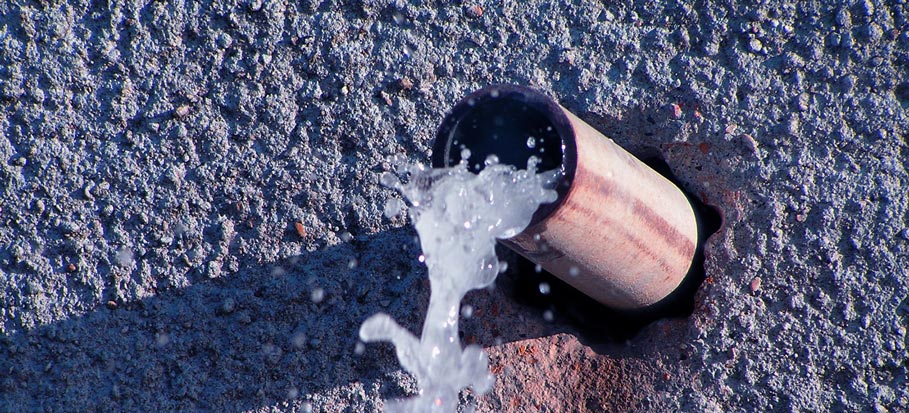6 Ways to Locate Concealed Water Leaks in Your Home
6 Ways to Locate Concealed Water Leaks in Your Home
Blog Article
In this article down the page you'll find a lot of worthwhile facts relating to Hacks to detect leaks.

Early discovery of dripping water lines can reduce a prospective disaster. Besides saving you money, it will certainly lessen the worry and irritation. The moment you locate a leak, calling your plumber for repairs is the very best service. Some small water leaks might not be visible. Below are some hacks that aid if you can not detect it with your naked eyes.
1. Examine the Water Meter
Checking it is a surefire way that aids you discover leakages. If it relocates, that shows a fast-moving leakage. This indicates you might have a slow leakage that could also be below ground.
2. Check Water Intake
If you detect unexpected adjustments, regardless of your intake being the same, it indicates that you have leaks in your plumbing system. A sudden spike in your costs indicates a fast-moving leak.
Meanwhile, a stable increase monthly, despite the same behaviors, reveals you have a sluggish leak that's also gradually rising. Call a plumber to thoroughly inspect your home, specifically if you feel a warm area on your flooring with piping below.
3. Do a Food Coloring Examination
When it comes to water intake, 30% comes from toilets. If the shade in some way infiltrates your bowl throughout that time without flushing, there's a leakage in between the container and dish.
4. Asses Exterior Lines
Do not neglect to check your outdoor water lines too. Test spigots by affixing a yard hose. Must water seep out of the link, you have a loosened rubber gasket. Change this as well as make sure all connections are limited. If you have actually obtained a lawn sprinkler, it will assist get it professionally analyzed and also maintained yearly. One little leakage can waste tons of water and spike your water bill.
5. Analyze the scenario as well as inspect
Homeowners must make it a practice to examine under the sink counters as well as also inside cupboards for any kind of bad odor or mold development. These two warnings indicate a leakage so punctual attention is called for. Doing routine assessments, even bi-annually, can save you from a significant trouble.
Much more notably, if you recognize your home is already old, maintain a watchful eye on your heating systems, hoses, pipes etc. Check for discolorations and compromising as most pipelines and appliances have a life span. They will certainly additionally naturally degrade due to damage. If you presume leaking water lines in your plumbing system, don't wait for it to escalate. Call a specialist plumber right now so you do not end up with a horrible mess in your home.
Early detection of dripping water lines can minimize a prospective catastrophe. Some little water leakages may not be visible. Inspecting it is a proven means that aids you discover leaks. One tiny leak can squander heaps of water and also increase your water costs.
If you believe leaking water lines in your plumbing system, don't wait for it to escalate.
WARNING SIGNS OF WATER LEAKAGE BEHIND THE WALL
PERSISTENT MUSTY ODORS
As water slowly drips from a leaky pipe inside the wall, flooring and sheetrock stay damp and develop an odor similar to wet cardboard. It generates a musty smell that can help you find hidden leaks.
MOLD IN UNUSUAL AREAS
Mold usually grows in wet areas like kitchens, baths and laundry rooms. If you spot the stuff on walls or baseboards in other rooms of the house, it’s a good indicator of undetected water leaks.
STAINS THAT GROW
When mold thrives around a leaky pipe, it sometimes takes hold on the inside surface of the affected wall. A growing stain on otherwise clean sheetrock is often your sign of a hidden plumbing problem.
PEELING OR BUBBLING WALLPAPER / PAINT
This clue is easy to miss in rooms that don’t get much use. When you see wallpaper separating along seams or paint bubbling or flaking off the wall, blame sheetrock that stays wet because of an undetected leak.
BUCKLED CEILINGS AND STAINED FLOORS
If ceilings or floors in bathrooms, kitchens or laundry areas develop structural problems, don’t rule out constant damp inside the walls. Wet sheetrock can affect adjacent framing, flooring and ceilings.
https://www.servicemasterbyzaba.com/blog/how-to-detect-water-leakage-in-walls/

As an avid reader on Locating water leaks, I think sharing that topic was worthwhile. Appreciated our post? Please share it. Let somebody else locate it. Thanks for taking the time to read it.
Report this page